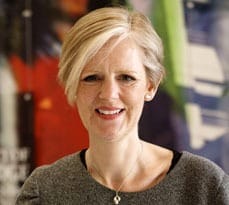Ever wonder how business schools come up with the recipe for their unique MBA offering? Director of the Cambridge MBA, Dr Jane Davies gives an insight into the process behind designing an MBA and how to keep it relevant to an ever-changing business world.

Jane Davies’s philosophy on designing an MBA programme is powerful, simple and deliberately ambitious:
“Candidates want to round out their skill set and leave with a broader one. Over 90 per cent of candidates will transition, after the MBA, to a new field or location or both. They want to leave with skills they can apply in their new situation, including the essentials of negotiation and team leading. “
Alongside the students’ aspirations, the School keeps in close touch with the aspirations of employers for their ideal MBA:
“We monitor closely the changing needs of employers and what skills are they looking for. For instance our Digital Business course supports feedback from recruiters who said skills in technical and digital business were sometimes missing in MBA graduates and were becoming more and more necessary. “
Benchmarking other leading business schools and mining graduate education research and statistics are also disciplines that help to round out the picture. The School’s Advisory Board and the business leaders who come to speak on the programme also give good advice in designing an MBA that is constantly evolving to meet candidates and their future employers’ diverse needs. Dr Davies adds:
“It’s never static – it is something that is, and should be, always evolving. It’s not a five to seven year review cycle any more. The business world is evolving rapidly and we need to try to be ahead of the curve. So we are constantly reviewing, looking at the portfolio of courses to determine if they are the right ones. And we also work hard to bring in the right recruiters every year to the campus. “
The MBA programme design also takes account of the students themselves as a resource to each other, says Dr Davies:
“The class make up is also vital – candidates can learn so much from each other – so we put together the class, and class project teams, with maximum diversity in mind. We don’t teach diversity, just as we don’t teach leadership, but they get this experience of working with and learning from different people from the diversity of their class. Watching how your peers from other cultures and business cultures operate can be a great grounding if you want to work in those regions post-MBA. Alumni tell us that this is very valuable in helping them work effectively in roles across the globe. “
Students apply this experience of team working during The Global Consulting Project (GCP), where project groups work for multi-national or global companies to develop and present solutions to a real-world problem. These companies appreciate the relevant skills the Cambridge MBA teaches, which can be seen in some of the feedback our students received for recent GCP for Actis; the Director and Head of Responsible Investment, Shami Nissan, said:
“The team impressed me with the quality of their work and thinking. They were quick to understand the complexity of private equity real estate investing. They were well organised and their communications with the Actis team throughout the project were excellent – we were informed but not inundated. The team exceeded our expectations and impressed us with their work ethic, thinking and presentation. “
Live practical projects within in real-world companies contribute greatly to ensuring that the Cambridge MBA remains up-to-date and relevant, as well as providing experience which can be leveraged post-MBA, because the projects students are working on are part of the current business landscape – a business landscape which continues to evolve and change. We embrace the challenge of ensuring that the Cambridge MBA – and our students – do the same.


